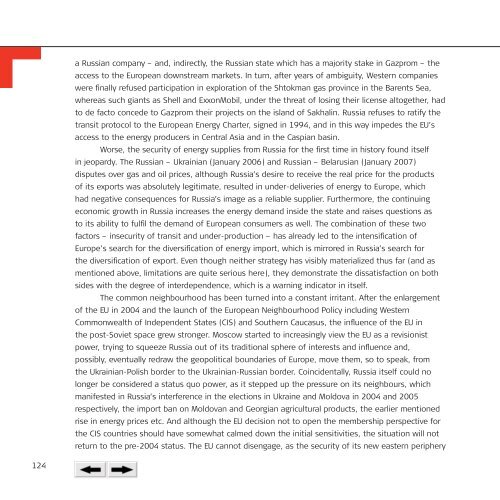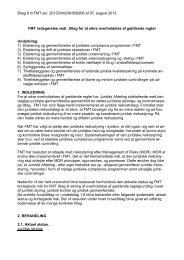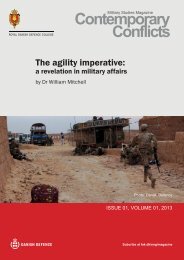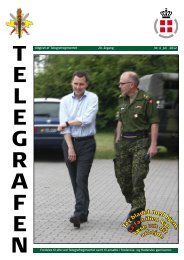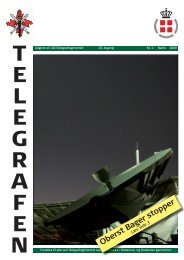Download PDF udgave
Download PDF udgave
Download PDF udgave
You also want an ePaper? Increase the reach of your titles
YUMPU automatically turns print PDFs into web optimized ePapers that Google loves.
124<br />
a Russian company – and, indirectly, the Russian state which has a majority stake in Gazprom – the<br />
access to the European downstream markets. In turn, after years of ambiguity, Western companies<br />
were fi nally refused participation in exploration of the Shtokman gas province in the Barents Sea,<br />
whereas such giants as Shell and ExxonMobil, under the threat of losing their license altogether, had<br />
to de facto concede to Gazprom their projects on the island of Sakhalin. Russia refuses to ratify the<br />
transit protocol to the European Energy Charter, signed in 1994, and in this way impedes the EU’s<br />
access to the energy producers in Central Asia and in the Caspian basin.<br />
Worse, the security of energy supplies from Russia for the fi rst time in history found itself<br />
in jeopardy. The Russian – Ukrainian (January 2006) and Russian – Belarusian (January 2007)<br />
disputes over gas and oil prices, although Russia’s desire to receive the real price for the products<br />
of its exports was absolutely legitimate, resulted in under-deliveries of energy to Europe, which<br />
had negative consequences for Russia’s image as a reliable supplier. Furthermore, the continuing<br />
economic growth in Russia increases the energy demand inside the state and raises questions as<br />
to its ability to fulfi l the demand of European consumers as well. The combination of these two<br />
factors – insecurity of transit and under-production – has already led to the intensifi cation of<br />
Europe’s search for the diversifi cation of energy import, which is mirrored in Russia’s search for<br />
the diversifi cation of export. Even though neither strategy has visibly materialized thus far (and as<br />
mentioned above, limitations are quite serious here), they demonstrate the dissatisfaction on both<br />
sides with the degree of interdependence, which is a warning indicator in itself.<br />
The common neighbourhood has been turned into a constant irritant. After the enlargement<br />
of the EU in 2004 and the launch of the European Neighbourhood Policy including Western<br />
Commonwealth of Independent States (CIS) and Southern Caucasus, the infl uence of the EU in<br />
the post-Soviet space grew stronger. Moscow started to increasingly view the EU as a revisionist<br />
power, trying to squeeze Russia out of its traditional sphere of interests and infl uence and,<br />
possibly, eventually redraw the geopolitical boundaries of Europe, move them, so to speak, from<br />
the Ukrainian-Polish border to the Ukrainian-Russian border. Coincidentally, Russia itself could no<br />
longer be considered a status quo power, as it stepped up the pressure on its neighbours, which<br />
manifested in Russia’s interference in the elections in Ukraine and Moldova in 2004 and 2005<br />
respectively, the import ban on Moldovan and Georgian agricultural products, the earlier mentioned<br />
rise in energy prices etc. And although the EU decision not to open the membership perspective for<br />
the CIS countries should have somewhat calmed down the initial sensitivities, the situation will not<br />
return to the pre-2004 status. The EU cannot disengage, as the security of its new eastern periphery


